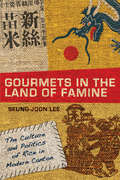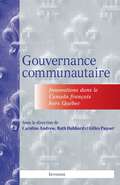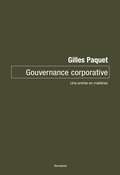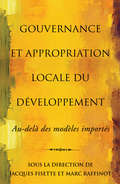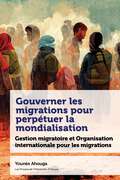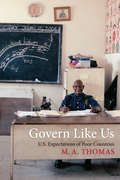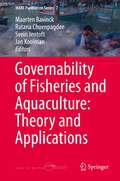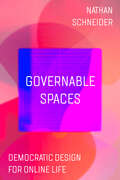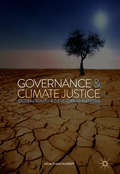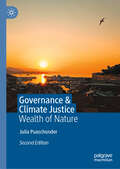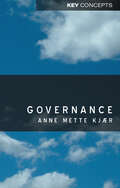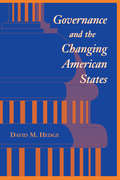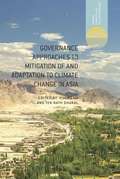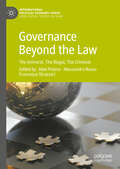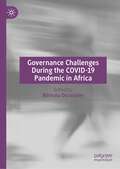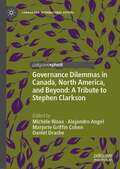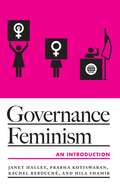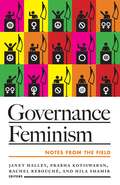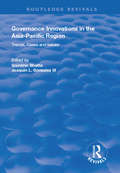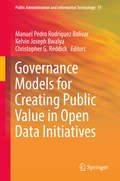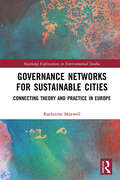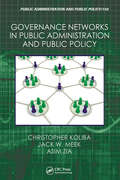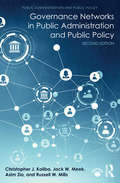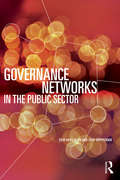- Table View
- List View
Gourmets in the Land of Famine
by Seung-Joon LeeFocusing on the rice trade, Lee (history, National U. of Singapore) examines conflicts over the system of food provisioning for the Chinese city of Canton (Guangzhou) between 1900 and 1937 and its impact on the city's food politics and culture. He describes how the viewpoints of local managers of provisioning understood Canton as a part of an international network of trade in maritime Southeast Asia and how this view came into conflict with the nationalist modernizing plans of Sun Yat Sen's Guomindang, who came to see foreign-rice imports at cheaper prices into Canton as a source of trade deficit and outflow of national wealth. He also describes how the international rice trade, spurred in Canton by its place within maritime trade networks and the decline of arable land in the Guangdong and Guangxi provinces, came to impact the dietary preferences of different sectors of the Cantonese urban population. Annotation ©2011 Book News, Inc. , Portland, OR (booknews. com)
Gouvernance communautaire: Innovations dans le Canada français hors Québec
by Marie Hélène Eddie Éric Champagne Mariette Mulaire Gina S. Comeau Guy Chiasson Simon Letendre Mathieu Voyer Thierry Arseneau Jean Léger Nathalie Plante Christine Dallaire Magalie-France Houle Éric Forgues d'Ornellia-N.J. Moyabi MampoumbouLa gouvernance communautaire, comme la gouvernance publique et privée, doit innover, et apprendre de manière continue à faire mieux en faisant autrement. Or, cela ne peut se faire que grâce à la collaboration, et celle-ci va prendre des formes diverses selon le milieu. L'innovation sociale adopte aussi des formes différentes en divers points d'un pays comme le Canada fait de sociétés distinctes par la langue, la culture et les arrangements institutionnels. Le fait que le monde communautaire se décline au pluriel implique que la collaboration est souvent plus difficile et que l'innovation se répand moins vite que dans les autres secteurs. Ce livre explore l'innovation dans le monde communautaire du Canada français hors Québec, dans le but de faire une certaine reconnaissance de l'état des lieux et de voir jusqu à quel point ces sociétés distinctes ont innové différemment, et peuvent apprendre l'une de l'autre et collaborer malgré leurs différences tant dans le monde franco-canadien comme tel qu'à travers les barrières culturelles et linguistiques. Universitaires et praticiens font rapport sur diverses expériences au plan national, en Nouvelle-Écosse, au Nouveau-Brunswick, en Ontario et au Manitoba, et sur les défis de la production et de la transmission des savoirs communautaires.
Gouvernance corporative: Une entrée en matières
by Gilles PaquetCe petit livre reprend en gros le contenu de la conférence d’ouverture livrée dans le programme de certification universitaire en gouvernance de sociétés du Collège des Administrateurs de l’Université Laval. Gouvernance corporative connote ici la coordination efficace et dynamique de l’organisation quand pouvoir, ressources et information sont vastement distribués entre plusieurs mains – dans le privé, le public, le communautaire, etc.
Gouvernance et appropriation locale du développement: Au-delà des modèles importés (Études en développement international et mondialisation)
by Fisette, Jacques; Raffinot, MarcLa gouvernance représente l'une des plus importantes innovations conceptuelles des quinze dernières années dans le discours de l'aide au développement. A-t-elle pour autant transformé les pratiques? A-t-elle conduit à une plus grande appropriation locale des enjeux du développement? Ces questions sont débattues autour de trois thèmes : les nouveaux dispositifs de lutte contre la pauvreté, le Nouveau Partenariat pour le Développement de l'Afrique (NEPAD) et enfin, la décentralisation et la gestion des services publics.
Gouverner les migrations pour perpétuer la mondialisation: Gestion migratoire et Organisation internationale pour les migrations
by Younès AhougaMigration management is a concept that proposes regulatory transparency in dealing with the realities of international migration. Migration management reduces the complexity of related regulation to make it more intelligible, to govern in a depoliticized, technocratic way, and to ensure the movement of globalization. In the absence of an international migration framework, however, migration management faces competition from the securitization and liberalization of migration. For migration management to endure, it must rely on the material application of its interpretations enabled by institutions. To understand the evolution of migration management from interpretation to application within the International Organization for Migration (IOM), this book notes three moments, its emergence, its organisation and its engagement From the early 2000s to 2018, this key institution in migration governance notably expanded its role and activities to include migration management. This book’s approach blends cultural political economy and critical discourse analysis to examine the evolution of a concept allowing for the interaction of the production of meaning, social actors' capacity for action, structuring of the institutional context, and government technologies. Based on an analysis of IOM meetings and documents, the author reveals how various international civil servants, diplomats and experts have formulated, disseminated, applied, or contested migration management. The study of this concept helps to understand IOM's transformation and its role in the constitution of a new migration governance, following the adoption of the Global Compact for Migration in 2018.
Govern Like Us
by M. A. ThomasIn the poorest countries, such as Afghanistan, Haiti, and Mali, the United States has struggled to work with governments whose corruption and lack of capacity are increasingly seen to be the cause of instability and poverty. The development and security communities call for "good governance" to improve the rule of law, democratic accountability, and the delivery of public goods and services. The United States and other rich liberal democracies insist that this is the only legitimate model of governance. Yet poor governments cannot govern according to these ideals and instead are compelled to rely more heavily on older, cheaper strategies of holding power, such as patronage and repression.The unwillingness to admit that poor governments do and must govern differently has cost the United States and others inestimable blood and coin. Informed by years of fieldwork and drawing on practitioner work and academic scholarship in politics, economics, law, and history, this book explains the origins of poor governments in the formation of the modern state system and describes the way they govern. It argues that, surprisingly, the effort to stigmatize and criminalize the governance of the poor is both fruitless and destabilizing. The United States requires a more effective foreign policy to engage poor governments and acknowledge how they govern.
Govern Like Us: U.S. Expectations of Poor Countries
by M. A. ThomasIn the poorest countries, such as Afghanistan, Haiti, and Mali, the United States has struggled to work with governments whose corruption and lack of capacity are increasingly seen to be the cause of instability and poverty. The development and security communities call for "good governance" to improve the rule of law, democratic accountability, and the delivery of public goods and services. The United States and other rich liberal democracies insist that this is the only legitimate model of governance. Yet poor governments cannot afford to govern according to these ideals and instead are compelled to rely more heavily on older, cheaper strategies of holding power, such as patronage and repression. The unwillingness to admit that poor governments do and must govern differently has cost the United States and others inestimable blood and coin. Informed by years of fieldwork and drawing on practitioner work and academic scholarship in politics, economics, law, and history, this book explains the origins of poor governments in the formation of the modern state system and describes the way they govern. It argues that, surprisingly, the effort to stigmatize and criminalize the governance of the poor is both fruitless and destabilizing. The United States must pursue a more effective foreign policy to engage poor governments and acknowledge how they govern.
Governability of Fisheries and Aquaculture: Theory and Applications
by Jan Kooiman Svein Jentoft Ratana Chuenpagdee Maarten BavinckFollowing from Fish for Life - Interactive Governance for Fisheries (Kooiman et al., 2005), which presents an interdisciplinary and intersectoral approach to the governance of capture and aquaculture fisheries, this volume pursues what interactive governance theory and the governability perspective contribute to the resolution of key fisheries problems, these include overfishing, unemployment and poverty, food insecurity, and social injustice. Since these problems are varied and can be felt among governments, resource users and communities globally, the diagnosis must be holistic, and take account of principles, institutions, and operational conditions. The authors argue that 'wicked problems' and institutional limitations are inherent to each setting, and must be included in the analysis. The volume thereby offers a new lens and a systematic approach for analysing the nature of problems and challenges concerning the governance of fisheries, explores where these problems are situated, and how potential solutions may be found. "It now seems clear that the crisis in the world's fisheries [is] a much larger and more complex problem than many had imagined. Yet, examining it through the lens of governability may offer the best hope for alleviating it--as well as alleviating similar crises in other social systems." James R. McGoodwin (Professor Emeritus, University of Colorado)
Governable Spaces: Democratic Design for Online Life
by Nathan SchneiderA free ebook version of this title is available through Luminos, University of California Press's Open Access publishing program. Visit www.luminosoa.org to learn more. When was the last time you participated in an election for an online group chat or sat on a jury for a dispute about a controversial post? Platforms nudge users to tolerate nearly all-powerful admins, moderators, and "benevolent dictators for life." In Governable Spaces, Nathan Schneider argues that the internet has been plagued by a phenomenon he calls "implicit feudalism": a bias, both cultural and technical, for building communities as fiefdoms. The consequences of this arrangement matter far beyond online spaces themselves, as feudal defaults train us to give up on our communities' democratic potential, inclining us to be more tolerant of autocratic tech CEOs and authoritarian tendencies among politicians. But online spaces could be sites of a creative, radical, and democratic renaissance. Using media archaeology, political theory, and participant observation, Schneider shows how the internet can learn from governance legacies of the past to become a more democratic medium, responsive and inventive unlike anything that has come before.
Governance & Climate Justice: Global South & Developing Nations (Politics, Economics, And Inclusive Development Ser.)
by Julia PuaschunderThis book examines international climate change mitigation and adaptation regimes with the aim of proposing fair climate stability implementation strategies. Based on the current endeavors to finance climate change mitigation and adaptation around the world, the author introduces a 3-dimensional climate justice approach to share the benefits and burdens of climate change equitably within society, across the globe and over time.
Governance & Climate Justice: Wealth of Nature
by Julia PuaschunderThis book builds upon a successful first edition to provide a renewed account of climate justice and governance. This second edition book examines international climate change mitigation and adaptation regimes with the aim of proposing fair climate stability implementation strategies. Based on the current endeavors to finance climate justice around the world, the author sophisticates a three-dimensional macroeconomic model to share the expected economic benefits and burdens of climate change equitably within society, across the globe and over time. This new edition substantiates discussions of the theoretical foundations of climate justice. The innovatively adopted &‘Climate Wealth of Nature&’ angle introduces new chapters on green finance and how to measure the economic wealth in nature as well as highlights the environmental impacts of financial crises and political frictions. Revised and extended data presents new indices for climate wealth redistribution strategies in order to derive recommendations for scientists, global governance practitioners and stakeholders.
Governance (Key Concepts)
by Anne Mette KjaerGovernance is an easy-to read introduction to an increasingly important concept in political science. It provides a clear overview of how the concept has been used in the sub-fields of public administration and public policy, international relations, European studies and comparative politics. There is no universally accepted and agreed definition of 'governance'. It remains an elusive theory, defined and conceptualized in various ways. In this book, Anne Mette Kjær guides the reader through the key theoretical debates which have given rise to distinct interpretations of governance. Drawing on a wide range of empirical examples to illustrate her arguments, the author explores how governance has been used in different ways to describe political changes in the modern world. She goes on to weigh up the pros and cons of governance as an analytical term, and concludes with a discussion of the World Bank’s role as an international organization which aims to promote ‘good governance’ in poor countries across the globe. This is the first textbook to offer a systematic assessment of current debates around the concept of governance. It will be a valuable resource for undergraduate and postgraduate students of politics, international relations and public policy.
Governance And The Changing American States (Transforming American Politics Ser.)
by David HedgeAmerica has rediscovered its states and their governments. After decades of dominance by the federal government, the balance of power is returning, often dramatically, to state governments. A devolution of authority began during the Reagan years, but recent Republican victories in Washington and in the states promise to accelerate the rate at which state governments assume greater responsibility for governing the nation. Inherent in that development is the sense that state governments, long perceived as the weakest link in American politics, are now perhaps the strongest.Here, David Hedge provides a comprehensive and up-to-date review of how states have evolved over the past several decades both on the demand side (citizen participation, elections, parties, interest groups) and the supply side (governors, legislatures, the courts) of state government. In addition to describing the kinds of changes that are occurring at the state level, Hedge looks at the impact of those developments on the quality of statehouse democracy and the ability of the states to govern effectively. The major theme of the text is that state governments in the nineties are better able to govern than ever before but suffer the same kinds of problems?inordinate interest group influence, partisanship, political stalemate?that we have seen at the federal level.Governance and the Changing American States offers students an important and timely framework for viewing and assessing these changes in state government in the context of recent research on the impact of changing state politics and governing.
Governance Approaches to Mitigation of and Adaptation to Climate Change in Asia
by Tek Nath Dhakal Huong HaAcademics and practitioners from across Asia and beyond revisit the issues and impact of climate change in Asia. They examine the preconditions for good governance regarding climate change, and the role of state and non-state actors in climate change governance, and explore different political-legal frameworks.
Governance Beyond the Law: The Immoral, The Illegal, The Criminal (International Political Economy Series)
by Abel Polese Alessandra Russo Francesco StrazzariThis volume explores the continuous line from informal and unrecorded practices all the way up to illegal and criminal practices, performed and reproduced by both individuals and organisations. The authors classify them as alternative, subversive forms of governance performed by marginal (and often invisible) peripheral actors. The volume studies how the informal and the extra-legal unfold transnationally and, in particular, how and why they have been/are being progressively criminalized and integrated into the construction of global and local dangerhoods; how the above-mentioned phenomena are embedded into a post-liberal security order; and whether they shape new states of exception and generate moral panic whose ultimate function is regulatory, disciplinary and one of crafting practices of political ordering.
Governance Challenges During the COVID-19 Pandemic in Africa
by Nirmala DorasamyThis book presents insights into the governance challenge associated with the management of the lockdown measures in relation to the welfare of citizens in selected African states. The intention of the project is to present a critical analysis of the effectiveness and the consequences of the measures adopted by the government of these African countries to contain further spread of the virus, within the context of existing governance challenges in the management of the public sector. This will expose the contradictions in the implementation of public policy and the actualization of its intendment for the promotion of good governance and the welfare of citizens. The benefit thereof is the feasibility of arousing further intellectual engagements on the need for effective management of public sector with strong infrastructural support for the good of all in Africa.
Governance Dilemmas in Canada, North America, and Beyond: A Tribute to Stephen Clarkson (Canada and International Affairs)
by Daniel Drache Marjorie Griffin Cohen Michèle Rioux Alejandro AngelThis book discusses the development of Canadian political economy through the legacy of Stephen Clarkson, who for over 40 years analyzed the challenges that economic changes brought to the economic governance of Canada, North America, and the world. Tracing the main themes of Clarkson scholarship, it explores in four sections how changes in the global economy, such as regional and inter-regional trade agreements, impact the political economy of Canada and North America, the focus of most of Clarkson’s works, without leaving aside the rest of the world. The book is divided in four main sections that correspond to Clarkson’s scholarly contributions. The epilogue takes a personal tone and presents how the legacy of Stephen Clarkson serves as an inspiration for scholars facing a different world.
Governance Feminism: An Introduction
by Janet Halley Prabha Kotiswaran Rachel Rebouché Hila ShamirDescribing and assessing feminist inroads into the state Feminists walk the halls of power. Governance Feminism: An Introduction shows how some feminists and feminist ideas—but by no means all—have entered into state and state-like power in recent years. Being a feminist can qualify you for a job in the United Nations, the World Bank, the International Criminal Court, the local prosecutor&’s office, or the child welfare bureaucracy. Feminists have built institutions and participate in governance.The authors argue that governance feminism is institutionally diverse and globally distributed. It emerges from grassroots activism as well as statutes and treaties, as crime control and as immanent bureaucracy. Conflicts among feminists—global North and South; left, center, and right—emerge as struggles over governance. This volume collects examples from the United States, Israel, India, and from transnational human rights law.Governance feminism poses new challenges for feminists: How shall we assess our successes and failures? What responsibility do we shoulder for the outcomes of our work? For the compromises and strange bedfellows we took on along the way? Can feminism foster a critique of its own successes? This volume offers a pathway to critical engagement with these pressing and significant questions.
Governance Feminism: Notes from the Field
by Janet Halley Prabha Kotiswaran Rachel Rebouché Hila ShamirAn interdisciplinary, multifaceted look at feminist engagements with governance across the global North and global SouthGovernance Feminism: Notes from the Field brings together nineteen chapters from leading feminist scholars and activists to critically describe and assess contemporary feminist engagements with state and state-like power. Gathering examples from North America, South America, Europe, Asia, and the Middle East, it complements and expands on the companion volume Governance Feminism: An Introduction. Its chapters argue that governance feminism (GF) is institutionally diverse and globally distributed—emerging from traditional sites of state power as well as from various forms of governance and operating at the grassroots level, in the private sector, in civil society, and in international relations. The book begins by confronting the key role that crime and punishment play in GFeminist projects. Here, contributors explore the ideological and political conditions under which this branch of GF became so robust and rethink the carceral turn. Other chapters speak to another face of GFeminism: feminists finding, in mundane and seemingly unspectacular bureaucratic tools, leverage to bring about change in policy and governance practices. Several contributions highlight the political, strategic, and ethical challenges that feminists and LGBT activists must negotiate to play on the governmental field. The book concludes with a focus on feminist interventions in postcolonial legal and political orders, looking at new policy spaces opened up by conflict, postconflict, and occupation.Providing a clear, cross-cutting, critical lens through which to map developments in feminist governance around the world, Governance Feminism: Notes from the Field makes sense of the costs and benefits of current feminist realities to reimagine feminist futures. Contributors: Libby Adler, Northeastern U; Aziza Ahmed, Northeastern U; Elizabeth Bernstein, Barnard College; Amy J. Cohen, Ohio State U; Karen Engle, U of Texas at Austin; Jacob Gersen, Harvard U; Leigh Goodmark, U of Maryland; Aeyal Gross, Tel Aviv U; Aya Gruber, U of Colorado, Boulder; Janet Halley, Harvard U; Rema Hammami, Birzeit U, Palestine; Vanja Hamzić, U of London; Isabel Cristina Jaramillo-Sierra; Prabha Kotiswaran, King&’s College London; Maleiha Malik, King&’s College London; Vasuki Nesiah, New York U; Dianne Otto, Melbourne Law School; Helen Reece; Darren Rosenblum, Pace U; Jeannie Suk Gersen, Harvard U; Mariana Valverde, U of Toronto.
Governance Innovations in the Asia-Pacific Region: Trends, Cases, and Issues (Routledge Revivals)
by Gambhir Bhatta Joaquin L. Gonzalez IiiPublished in 1998. The debate on what constitutes good governance - and more importantly, how to attain it - is not a new issue. The elusive - and pluralistic - nature of governance ensures that much more needs to be studied about the specific incidence of good governance before a unifying theme on how exactly to develop a universal framework of application of governance can be finalized. It is within this context that this book seeks to fill a vacuum in the theory-practice dichotomy that, it argues, has dominated the debate on governance so far.
Governance Models for Creating Public Value in Open Data Initiatives (Public Administration and Information Technology #31)
by Christopher G. Reddick Manuel Pedro Rodríguez Bolívar Kelvin Joseph BwalyaThis book relies on the conceptual model of Open Government (OG), focusing on transparency and, concretely, in open data initiatives at the local government context with the aim of improving participation and collaboration. Most Open Government models are centered on three pillars: transparency, participation and collaboration. Transparency is a crucial ingredient of OG and, applied to data openness means to ensure that the data are well known, comprehensible, easily accessible and open to all. new governance models based on different open data models have not been proposed up to now. The chapter authors seek to contribute recent research to the discussion on governance models of open data initiatives to support Open Governments with the aim of creating public value. It includes both theoretical and empirical studies on governments models in open data initiatives.
Governance Networks for Sustainable Cities: Connecting Theory and Practice in Europe (Routledge Explorations in Environmental Studies)
by Katherine MaxwellThis book explores the effectiveness of governance networks on the design and implementation of sustainability strategies. European cities are actively developing sustainability strategies to address the impact of climate change. One recent approach many cities have taken is the creation of ‘governance networks’: groups of public, private and third sector organisations, which collaborate to support urban sustainability efforts. Drawing on two case studies in Glasgow and Copenhagen, this book explores the concept of governance networks in theory and practice, revealing how stakeholder collaboration, leadership and innovation within these networks can help or hinder the process. It also highlights the many benefits of these networks, including increased participation in the decision-making process, increased levels of resources and expertise on sustainability issues, as well as stakeholder buy-in for sustainability policies. This book provides recommendations for improving the efficiency of governance networks and will be of interest to academics and practitioners working in the areas of urban governance and sustainability.
Governance Networks in Public Administration and Public Policy: Analysis For A New Era (Public Administration and Public Policy)
by Jack W. Meek Christopher J. Koliba Asim Zia Russell W. MillsWhat do public administrators and policy analysts have in common? Their work is undertaken within networks formed when different organizations align to accomplish some kind of policy function. To be effective, they must find ways to navigate complexity and generate effective results. Governance Networks in Public Administration and Public Policy describes a variety of trends and movements that have contributed to the complexity of these systems and the challenges that must be faced as a result. Providing a theoretical and empirical foundation in governance networks, the book offers a conceptual framework for describing governance networks and provides a holistic way to conceive their construction. The text details the skills and functions of public administrators in the context of networked relationships and presents the theoretical foundations to analyze governance networks. It identifies the reforms and trends in governing that led to governance networks, explains the roles that various actors take on through networked relationships, highlights the challenges involved in the failure of networked activities, and illustrates how policy tools are mobilized by these relationships. Be a part of building governance networks 2.0! The author’s website contains support materials such as PowerPoint® presentations, writable case study templates, and other useful items related to building the field’s capacity to describe, evaluate, and design governance networks using the framework of this book. You can post case studies of governance networks, draw on other’s case study materials, and learn about research and educational opportunities. Based on research and real-life experience, the book highlights the interplay between public actors and policy tools. The authors demystify this complex topic of governance networks and explore the practical applications of the conceptual framework. Practical and accessible, the book presents concepts in such a way that readers can engage in these ideas, apply them, and deepen their understanding of the dynamics unfolding around them.
Governance Networks in Public Administration and Public Policy: Analysis For A New Era (Public Administration and Public Policy)
by Jack W. Meek Christopher J. Koliba Asim Zia Russell W. MillsWhat do public administrators and policy analysts have in common? Their work is undertaken within networks formed when different organizations align to accomplish some kind of policy function. This second edition of Governance Networks in Public Administration and Public Policy offers a conceptual framework for describing governance networks and provides a theoretical and empirical foundation in their construction. Based on research and real-life experience, the book highlights the interplay between public actors and policy tools, details the skills and functions of public administrators in the context of networked relationships, and identifies the reforms and trends in governing that led to governance networks. This practical and accessible text presents often complex concepts in such a way that readers can engage in the ideas, apply them, and deepen their understanding of the dynamics unfolding around them. New to this edition: A dedicated chapter on ‘complexity friendly’ meso-level theories to examine core questions facing governance network analysis New case studies drawn from the authors’ own work in watershed governance, transportation planning, food systems development, electric energy distribution, the regulation of energy, and response and recovery from natural disasters, as well as from unique computational modeling of governance networks A ‘cases and contexts’ section at the end of each chapter to illustrate core theoretical concepts and help students apply those theories to real-world examples. Further instructor and student support materials including PowerPoint® presentations and writable case study templates may be found on an accompanying eResource page. Governance Networks in Public Administration and Public Policy is an indispensable core text for graduate and postgraduate courses on governance and collaboration in schools of Public Administration/Management and Public Policy.
Governance Networks in the Public Sector
by Erik Hans Klijn Joop KoppenjanGovernance Networks in the Public Sector presents a comprehensive study of governance networks and the management of complexities in network settings. Public, private and non-profit organizations are increasingly faced with complex, wicked problems when making decisions, developing policies or delivering services in the public sector. These activities take place in networks of interdependent actors guided by diverging and sometimes conflicting perceptions and strategies. As a result these networks are dominated by cognitive, strategic and institutional complexities. Dealing with these complexities requires sophisticated forms of coordination: network governance. This book presents the most recent theoretical and empirical insights into governance networks.? It provides a conceptual framework and analytical tools to study the complexities involved in handling wicked problems in governance networks in the public sector. The book also discusses strategies and management recommendations for governments, business and third sector organisations operating in and governing networks. Governance Networks in the Public Sector is an essential text for advanced students of public management, public administration, public policy and political science, and for public managers and policymakers.
